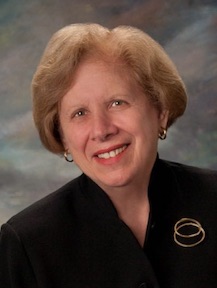By Bailey DeSimone
Nancy Weiss Malkiel is the 2018 recipient of the Phi Beta Kappa Sidney Hook award, a scholar of 20th century American history, and an inspiring force in the fields of feminism and higher education.
The Sidney Hook Memorial Award, established in 1991, recognizes national distinction in scholarship, undergraduate teaching, and leadership, all of which Malkiel’s legacy encompasses.
“I am humbled, honored, and deeply grateful to have been selected for this wonderful award,” states Malkiel. “To be a part of a distinguished company that includes some of my personal heroes—Natalie Zemon Davis and John Hope Franklin chief among them—is a recognition I could never have imagined.”
After earning her Bachelor of Arts and an honorary degree from Smith College, Malkiel earned her Masters and Ph.D. from Harvard University, an opportunity her thesis advisor encouraged her to puruse.
“He nominated me for a Woodrow Wilson Fellowship, and he recommended me for admission to the Ph.D. program at Harvard, where he had been a student,” Malkiel explains. “Harvard was a more challenging environment than Smith had been—there were no women faculty members and very, very few women graduate students. There were no women at Princeton at that point, but my adviser said that he thought it would be good for them to have to consider appointing a woman to the faculty. When I arrived for my interview the department chair said that it wasn’t that Princeton had a policy against hiring women—it was just that no one had ever suggested it before.”
Malkiel’s joining the Princeton faculty coincided with the university’s first admission of undergraduate women. “This wasn’t a straightforward move—it was highly controversial in an institution with such a long and strong all-male tradition,” she remembers. “I was one of three women in the professorial ranks in the university, which meant high visibility and lots of opportunity to experience different aspects of university life (everyone wanted one of us to serve on committees, address all manner of audiences, and so on). That gave me a leg up, I think, on understanding the university and having the chance to try my hand at a number of things that would later build toward an administrative career.”
Malkiel dedicated herself to the field of higher education through her service as the Dean of the College at Princeton University and by contributing efforts to the foundation of the Dean Mathey College. In this time, she oversaw major strides being made at a research-intensive university where “undergraduate education is a very, very high priority,” she says.
“We were lucky enough at various points to have some resources to invest in new initiatives, including a freshman writing program, a greatly-expanded freshman seminar program, special intensive interdisciplinary course sequences, new general education requirements, a center for teaching and learning, study abroad and international internships, a bridge year program to provide a year of international service before students matriculate at Princeton, and a no-loan financial aid policy,” Malkiel elaborates in regards to the accomplishments she contributed to.
Malkiel recalls her freshman year at Smith College, where she first became aware of Phi Beta Kappa and its lasting legacy. “I was awed by the accomplishments of the students who were being honored, and I resolved that I would try my best to join their distinguished company,” she remembers. “When I was elected…I had an acute sense of being deemed worthy to join a long line of students dedicated to the life of the mind.”
Her commitment to Phi Beta Kappa did not end following her induction—Malkiel was a regular participant in Princeton University’s undergraduate election processes, in addition to serving as the campus’s chapter president for a number of years.
“To me, Phi Beta Kappa exemplifies intellectual inquiry and critical thinking at the highest level of sophistication,” Malkiel attests. “[It is] a commitment to excellence that is truly inspiring.”
The gender issues which surrounded Malkiel during the early stages of her career are discussed in her publication Keep the Damned Women Out”: The Struggle for Coeducation (Princeton University Press, 2016). In the book, she assesses the time period during which higher education institutions in the United States transitioned to coeducation.
“There are so many gender issues still on the table: the underrepresentation of women in the ranks of graduate students and college and university faculties; the persistence of gendered fields of study; the reluctance of women undergraduates in coeducational schools to fill major campus leadership positions; sexual harassment and sexual assault,” Malkiel says.
Currently, Malkiel serves as a professor of history, emeritus, at Princeton University and is a trustee of the Woodrow Wilson National Fellowship Foundation. As the Sidney Hook Award recipient, she embodies the value of learning through her successful endeavors in higher education institutions.
“No matter what your career goals may be, you can concentrate in any field,” Malkiel emphasizes. “Study what you love! Follow your intellectual passions.”
Bailey DeSimone (ΦBK, University of North Carolina at Chapel Hill, 2017) is an Archives Intern with the Smithsonian Center for Folklife and Cultural Heritage and a Library Assistant with the Council on Foreign Relations. At Chapel Hill, DeSimone majored in history and global studies. The University of North Carolina at Chapel Hill is home to the Alpha of North Carolina Chapter of Phi Beta Kappa.




